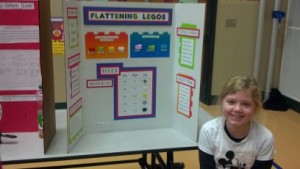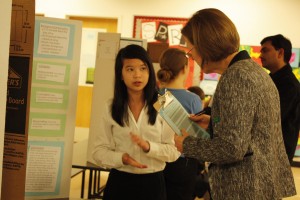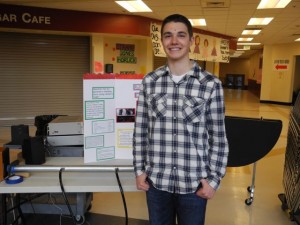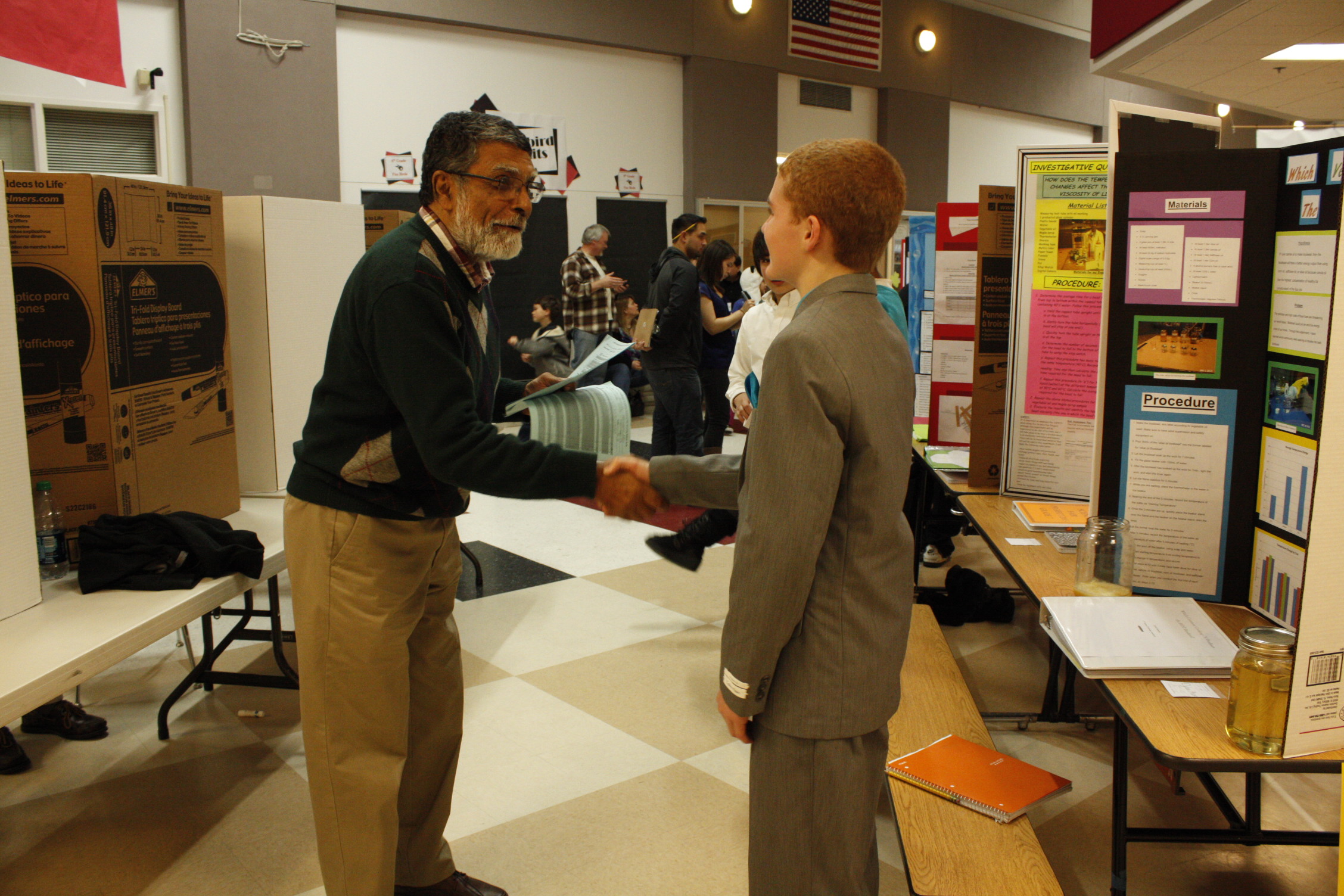By Doris Faltys
 The Science Fair experience occurs in our local schools at differing times of the year. For many schools Science Fair is scheduled in late winter or spring. Science in the classroom follows state mandates but is presented in a variety of ways depending on the district or the particular school.
The Science Fair experience occurs in our local schools at differing times of the year. For many schools Science Fair is scheduled in late winter or spring. Science in the classroom follows state mandates but is presented in a variety of ways depending on the district or the particular school.
The Tumwater school district utilizes the STEM program, (science, technology, engineering, and mathematics,) as an added boost to their science curriculums. This year the STEM program in Mrs. Potkonjak’s 5th grade class is focusing on transportation by studying robotics, flight, and hot air balloons.

At Olympia School District’s Julia Butler Hansen Elementary School, Science Fair will be in May. Mrs. Rowell’s 3rd grade class hasn’t begun to think about that yet. The class is currently studying rocks using the FOSS Science curriculum. “Our project models the scientific process,” says Mrs. Rowell. “Starting with a clear written hypothesis, the students collect data and work as scientists together. They are learning the properties of rocks. How do real geologists determine the different kinds of rocks? My students learn this by observation, and testing. For example, to see if a rock contains calcite, the rocks are put in vinegar, (an acid test). If there is calcite in the rock, there will be bubbles. If they don’t see the bubbles, they need to wait until the vinegar evaporates to see if there is a calcite residue on the container.”
Mrs. Rowell will encourage all her 3rd grade class to participate in Science Fair this spring. She explains, “Working on a science project my students learn precision and accuracy. Scientists can’t be sloppy,” she adds. I can tell that Mrs. Rowell is excited about science and about teaching in general. She has seen students who are disinterested in reading, writing, and school, become hooked on learning though the investigation of the world of science. “Science is about wonder,” Mrs. Rowell says. “But, if kids, and parents aren’t unplugged, if they don’t unplug from technology and get outside, those, ‘I wonder,’ questions won’t come up.”

Mrs. Hayes, 5th grade Hansen Elementary School teacher has been promoting science in the Olympia School District for many years. She received the Washington State Science Teachers’ Association Science Teacher of the Year Award for 2011-2012. “Science is all about questions,” she says. “What is needed is wonderment.”
Mrs. Hayes says, “Science encourages an open mind, tenacity enough to find an answer to your question, critical skills, and honesty. Kids get a great deal of confidence and satisfaction from having participated in a science fair…it’s a great confidence builder. It is a good opportunity to teach ethics, and for students to learn it is ok to be wrong. For example, sometimes the data does not support the hypothesis.”
“Why do we need to push kids to participate in science fair,” I ask? “There is big money for kids winning science fairs,” Mrs. Hayes replies. “Schools are scouting at the Regional and State Science Fairs. If there is funding out there, we want our kids to have the skills and experience to be able to compete for it. That is why science fair is worthwhile. It is our responsibility to provide the means for our students to obtain these skills.”
Mrs. Hayes feels that competing at Regional and State Science Fairs is a great way for students to learn more about science. 15 students from Hansen took their projects to the Regional Science Fair last year. (This year the state fair is April 5-6.)

Some of our Science Fairs invite “Community Scientists”, local doctors, professors, field scientists, researchers, geologists, to judge the students’ projects. In most cases these “judges” do not give a rating. They discuss the project with the individual students’, ask questions, give complements, and suggestions on improving the project. Some of our community scientists say that helping out at Science Fair is a highlight of their year!
June Dhamers, who teaches advanced math and science at Aspire Middle School, part of North Thurston Public School’s Challenge Academy requires all students to participate in Aspire’s Science Fair at Aspire and at the Regional Science Fair at Pacific Lutheran University. Mrs. Dhamers considers her school science fair a rehearsal for the Regional Fair.
“Middle school is the hook you need to keep students focused and excited about learning when they reach high school,” says Mrs. Dhamenrs. “If students are not already hooked on learning high school can feel like ‘paddling up stream.’ It is easier to motivate middle school students. It is the right time to grab them,” she adds. Mrs. Dhamers shared a few quotes about Science Fair from her students:
- You develop a sense of responsibility by creating your own science project. It was interesting to see all the different judge’s backgrounds. – Kim W., 7th grade
- It was interesting to be judged by the previous Challenge Academy students who are now in high school, because we now know what the expectations are when we get to high school. – Bear H., 6th grade
- Seeing people that could apply your science fair project results to their field of work was encouraging. – Paige A., 7th grade

Capital High School, Olympia School District held their Science Fair earlier in March. One highlight was the project created by two of Mr. Bove’s Physic’s tenth grade students, Morgan and Jack. Their project answered the question, “Can we generate a standing wave using a Ruben’s Tube?” Fire and great music had the high school audience captivated!
Take some tips from Mrs. Potkonjak when attending a science fair.
- Don’t try to see it all
- Pick 2-5 projects and really see those.
- Choose a different age group for each project you visit.
- Spend time listening to the student present their project.
- Ask open-ended questions that require a response of learning. Avoid criticisms.
- Enjoy listening to the learning that is happening.
- Experience the fun the student has had preparing and is having presenting to you.
- Notice or ask about family interaction with the project.
- Keep the student talking.



















































